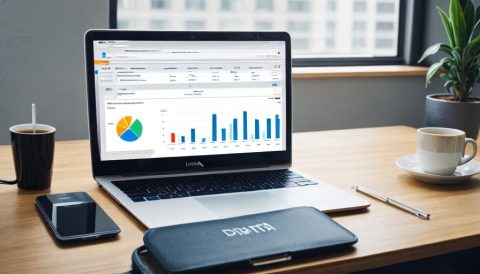In today’s digital age, personal data security is paramount. As we share more information online, the risk of cyber threats increases. From identity theft to financial fraud, the consequences can be severe. In this article, we’ll explore practical tips to enhance your personal data security and safeguard your online presence.
Introduction:
Personal data security involves protecting sensitive information from unauthorized access, ensuring confidentiality, and preventing misuse, and the increasing prevalence of online threats highlights the critical need for individuals to prioritize the security of their personal data.
1- Understanding Online Threats
A. Common Cyber Threats
Familiarizing ourselves with common threats like phishing, malware, and identity theft is the first step in enhancing online security.
B. Risks Associated with Online Activities
Every online interaction comes with inherent risks; understanding these risks is crucial for implementing effective security measures.
2- Strong Password Practices
A. Importance of Strong Passwords
Creating strong, unique passwords is a fundamental aspect of personal data security.
B. Tips for Creating Secure Passwords
Utilizing a combination of letters, numbers, and symbols can significantly strengthen your passwords.
3-Two-Factor Authentication (2FA)
A. Explanation of 2FA
Implementing two-factor authentication adds an extra layer of security by requiring a second form of verification.
B. Implementing 2FA for Enhanced Security
Enabling 2FA on your accounts provides an additional barrier against unauthorized access.
4-Keeping Software and Devices Updated
A. Significance of Software Updates
Regular updates patch vulnerabilities, reducing the risk of exploitation by cybercriminals.
B. Ensuring Device Security Through Regular Updates
Updating your devices, including smartphones and computers, is vital for maintaining a secure online environment.
5- Safe Browsing Habits
A. Identifying Phishing Attempts
Being able to recognize phishing attempts helps you avoid falling victim to deceptive tactics.
B. Avoiding Suspicious Websites
Navigating only to secure and reputable websites minimize the risk of encountering malicious content.
6- Secure Wi-Fi Connections
A. Setting Up a Secure Wi-Fi Network
Securing your Wi-Fi network prevents unauthorized access and protects your online activities.
B. Risks of Unsecured Wi-Fi Connections
Unsecured Wi-Fi networks expose users to potential privacy breaches; taking steps to secure your connection is essential.
7-Regular Data Backups
A. Importance of Data Backups
Regularly backing up your data ensures you can recover essential information in case of data loss or cyber-attacks.
B. Methods for Backing Up Personal Data
Utilizing cloud storage or external drives provides secure options for storing backups.
8-Privacy Settings on social media
A. Adjusting Privacy Settings on Social Platforms
Reviewing and customizing privacy settings on social media platforms helps control the information you share.
B. Limiting Information Shared Online
Being mindful of the data you share publicly contributes to a more secure online presence.
9- Educating Yourself About Cybersecurity
A. Staying Informed About the Latest Threats
Keeping abreast of the latest cybersecurity threats empowers you to adapt and respond effectively.
B. Participating in Cybersecurity Awareness Programs
Engaging in awareness programs enhances your understanding of online risks and best practices.
10- Monitoring Financial Transactions
A. Checking Financial Statements Regularly
Regularly reviewing bank and credit card statements allows you to detect and address any suspicious activities promptly.
B. Reporting Suspicious Activities Promptly
Taking swift action to report any suspicious transactions adds an extra layer of protection.
11- Using Reliable Security Software
A. Overview of Antivirus and Anti-Malware Tools
Investing in reputable security software provides an essential defense against various online threats.
B. Choosing the Right Security Software
Selecting security software that aligns with your needs and preferences enhances overall protection.
12-Avoiding Public Computers for Sensitive Transactions
A. Risks Associated with Public Computers
Public computers may compromise your personal data; avoiding them for sensitive transactions is advisable.
B. Alternatives for Secure Transactions
Opting for personal devices or secure online platforms ensures a safer environment for sensitive transactions.
13- Encouraging Online Safety for Children
A. Importance of Educating Children About Online Security
Instilling good online habits in children is crucial for their safety and the security of family data.
B. Implementing Parental Controls
Utilizing parental control features helps manage and monitor children’s online activities.
Conclusion:
In conclusion, taking proactive measures to enhance personal data security online is a responsibility we all share, and By following these tips and staying
vigilant, individuals can significantly reduce their vulnerability to online threats.







[…] Tips for Enhancing Personal Data Security Online […]
[…] 3- Reduce Your Digital Footprint to Protect Your Privacy […]